Featured
 Minority Rule Cannot Last in America. It Never Has. By Kenneth Owen / The Atlantic
Minority Rule Cannot Last in America. It Never Has. By Kenneth Owen / The Atlantic
Republicans may not be able to sustain their power for long—at least not peacefully. When parties commit themselves to minority rule, the backlash can be severe. While the letter of the law allows Republicans to control the Senate and the judiciary, the spirit of republican government demands otherwise. The two cannot long exist in tension with each other. Though the 2020 election did not result in a blue tidal wave, it did suggest emerging Democratic majorities in formerly red states such as Arizona and Georgia. If, eventually, demographic change adds North Carolina and Texas to the mix, national elections would more accurately reflect the national popular vote. History suggests that Republicans would then pay—dearly—for their years of minority rule. Read more
Related: Now Is the Time to Make Good on the Promise of Justice for All. By Rep, Ayanna Pressley / The Nation
Political / Social
 The 80-Million-Vote Man Has a Very Fragile Coalition. By Thomas B. Edsall / NYT
The 80-Million-Vote Man Has a Very Fragile Coalition. By Thomas B. Edsall / NYT
In battleground congressional and statehouse districts, the same pattern appeared over and over again this year. At the top of the ticket, Joe Biden won, often handily. Further down the ticket, in contests for seats in the House and state legislatures, Democratic candidates repeatedly lost. The surge of suburban Democratic voting in 2018 for House and state legislative collapsed in 2020, with Republicans gaining 179 state legislative seats and at least 11 seats in the House of Representatives. Read more
 In neighboring Georgia counties, election revealed a growing divide that mirrors the nation. By Haisten Willis and Griff Witte / Wash Post
In neighboring Georgia counties, election revealed a growing divide that mirrors the nation. By Haisten Willis and Griff Witte / Wash Post
Not long ago, Elizabeth Allen and Wanda Cummings were on the same side of America’s political divide. Both were reliable Republican voters in a reliably conservative part of a reliably red state. But Cummings and Allen have changed, and so has their state, Georgia. Allen cast a vote for Joe Biden this year — helping him to swell his margins in the fast-growing suburbs of Newton County. Cummings, a retired antique store owner, moved from Newton and found ideological kinship just across the county line, in rural and ever-redder Jasper. She reluctantly backed Trump in 2016. But after his four years in office, she — and her new county — turned out for the president with gusto. Read more
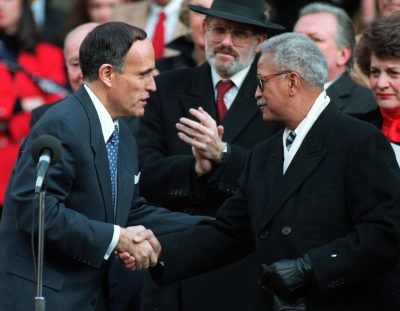 How Dinkins and Giuliani Foretold the Future of American Politics. By Michael Tomasky / NYT
How Dinkins and Giuliani Foretold the Future of American Politics. By Michael Tomasky / NYT
As I’ve thought back on those years in the wake of Mr. Dinkins’s passing last week, I’m floored at the extent to which the politics of New York City foreshadowed the national politics of today. If the American polity consists of two warring camps right now, we might say that the New York of that time helped blaze that unhappy trail. The 1993 race was a rematch of their 1989 contest, when Mr. Dinkins beat Mr. Giuliani by less than 50,000 votes out of nearly two million cast. In the rematch, Mr. Giuliani won by about 53,000. Read more
 Donald Trump’s mini-monster: Stephen Miller wasn’t born that way. By Chauncey DeVega / Salon
Donald Trump’s mini-monster: Stephen Miller wasn’t born that way. By Chauncey DeVega / Salon
As shown in investigative journalist Jean Guerrero’s new book “Hatemonger: Stephen Miller, Donald Trump, and the White Nationalist Agenda,” Trump’s infamous adviser Stephen Miller is something different and more dangerous: he is an ideologue, a true believer in white supremacy. Miller has repeatedly taken Trump’s worst instincts and made them worse yet. Examples include the child separation policy, mass detention centers along the border and a general policy of cruelty toward nonwhite migrants and refugees, sabotaging pandemic relief efforts, and an overarching strategy of mainstreaming white supremacy into public policy and attempting to overturn America’s multiracial democracy. Read more
Related: Inside the white supremacist global network. By David Ignatius / Wash Post
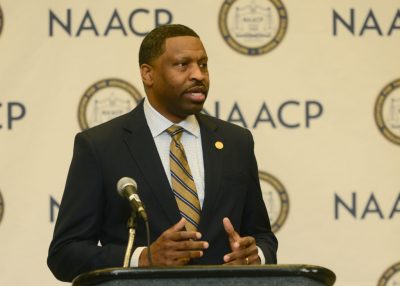 Seven civil rights groups want a meeting with Joe Biden. The agenda: Appointing Black officials in top roles, not lower-ranking ones. By Annie Linskey and Matt Viser / Wash Post
Seven civil rights groups want a meeting with Joe Biden. The agenda: Appointing Black officials in top roles, not lower-ranking ones. By Annie Linskey and Matt Viser / Wash Post
Representatives from seven of the country’s leading civil rights organizations are pressing to meet with President-elect Joe Biden in coming days, escalating pressure on him to appoint Black nominees to the remaining high-profile Cabinet posts amid concern that White nominees have dominated so far. Biden has rolled out a diverse set of appointments but reserved the initial marquee slots in the Cabinet and White House for White candidates, prompting worry that Biden is failing to make good on his promises to promote Black leaders to prominent jobs. Read more
 Louisville police ‘no-knock’ warrants mostly targeted Black residents. By Matt Mencarini, Darcy Costello and Tessa Duvall / Louisville Courier Journal and USA Today
Louisville police ‘no-knock’ warrants mostly targeted Black residents. By Matt Mencarini, Darcy Costello and Tessa Duvall / Louisville Courier Journal and USA Today
Police disproportionately targeted Black residents for “no-knock” search warrants like the one that led officers to Breonna Taylor’s door the night they fatally shot her, an analysis shows. The findings by the Louisville Courier Journal, part of the USA TODAY Network, echo the concerns of civil rights advocates and experts who say no-knock warrants are used more frequently against Black and brown Americans. “The common factors are the poor and people of color – in a highly disproportionate way,” said Peter Kraska, a professor at Eastern Kentucky University who has testified before the U.S. Senate on law enforcement’s use of military tactics and equipment. Read more
 When Covid-19 closed schools, Black, Hispanic and poor kids took biggest hit in math, reading. By Erin Einhorn / NBC News
When Covid-19 closed schools, Black, Hispanic and poor kids took biggest hit in math, reading. By Erin Einhorn / NBC News
While a majority of students did better than expected in reading — scoring at levels similar to typical nonpandemic years — this wasn’t true for Black and Hispanic students and those who attend high-poverty schools. Those groups of students saw slight declines, suggesting the pandemic has exacerbated long-standing educational disparities, possibly setting children who were already behind their white and more affluent peers even further behind. “It’s a reason for concern and it’s a reason to really focus our attention on helping catch kids up,” said Megan Kuhfeld, an NWEA senior research scientist and the lead author of the study. Read more
 Bill that could help Black farmers reclaim millions of acres ‘a step in the right direction.’ By Mariya Mosely / ABC News
Bill that could help Black farmers reclaim millions of acres ‘a step in the right direction.’ By Mariya Mosely / ABC News
There was a time when Black-owned farms were booming — before those farmers were stripped of tens of thousands of acres because of racist policies. Today, most rural land in the U.S. is owned by white people. But now, finally, a new piece of legislation could help African Americans reclaim some of that acreage. The Justice for Black Farmers Act, introduced earlier this month by Sen. Cory Booker, D-N.J., would allow Black farmers to reclaim up to 160 acres each, at no charge, through a Department of Agriculture system of land grants. Read more
 Pennsylvania Supreme Court hears arguments in Bill Cosby appeal. By CBS News
Pennsylvania Supreme Court hears arguments in Bill Cosby appeal. By CBS News
Pennsylvania’s highest court questioned Tuesday whether Bill Cosby’s alleged history of intoxicating and sexually assaulting young women amounted to a signature crime pattern, given studies that show as many as half of all sexual assaults involve drugs or alcohol. Cosby, 83, hopes to overturn his 2018 sex assault conviction because the judge let prosecutors call five other accusers who said Cosby mistreated them the same way he did his victim, Andrea Constand. The defense said their testimony prejudiced the jury against the actor and should not have been allowed. Watch here
History / Culture
 1918 Germany Has a Warning for America. Donald Trump’s “Stop the Steal” campaign recalls one of the most disastrous political lies of the 20th century. By Jochen Bittner / NYT
1918 Germany Has a Warning for America. Donald Trump’s “Stop the Steal” campaign recalls one of the most disastrous political lies of the 20th century. By Jochen Bittner / NYTIt may well be that Germans have a special inclination to panic at specters from the past, and I admit that this alarmism annoys me at times. Yet watching President Trump’s “Stop the Steal” campaign since Election Day, I can’t help but see a parallel to one of the most dreadful episodes from Germany’s history. One hundred years ago, amid the implosions of Imperial Germany, powerful conservatives who led the country into war refused to accept that they had lost. Their denial gave birth to arguably the most potent and disastrous political lie of the 20th century — the Dolchstosslegende, or stab-in-the-back myth. Read more
Related: Most Republicans Say They Doubt the Election. How Many Really Mean It? By Emily Badger / NYT
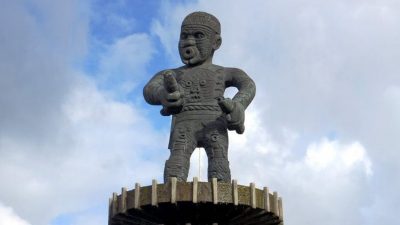 Reckoning with slavery: What a revolt’s archives tell us about who owns the past. By Marjoleine Kars / The Conversation
Reckoning with slavery: What a revolt’s archives tell us about who owns the past. By Marjoleine Kars / The Conversation
The consequences of 400 years of the Atlantic slave trade are still felt today. Untangling the power structures and systemic racism that came with slavery is ongoing, with police brutality, memorials to slave owners and reparations forming part of the discussion. But as the United Nations marks Dec. 2 as the International Day for the Abolition of Slavery, a practice it notes “is not merely a historic relic,” modern society also has to reckon with another question: Who has access to the records about slavery’s past? Shown is statue of the Berbice slave revolt leader Kofi in Georgetown, Guyana. Read more
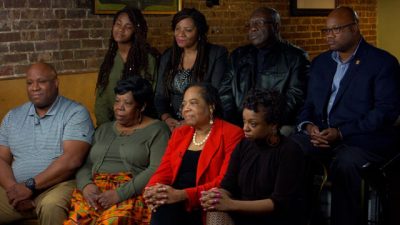 Finding the last ship known to have brought enslaved Africans to America and the descendants of its survivors. By Anderson Cooper / CBS News
Finding the last ship known to have brought enslaved Africans to America and the descendants of its survivors. By Anderson Cooper / CBS News
The Clotilda was burned and sunk in an Alabama River after bringing 110 imprisoned people across the Atlantic in 1860. Two years ago, its remains were found. Anderson Cooper reports on the discovery of the wreck and the nearby community with descendants of the enslaved aboard the ship. Read more
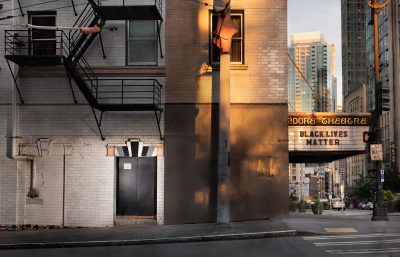 Hidden in Plain Sight: The Ghosts of Segregation. Photographs and Text by
Hidden in Plain Sight: The Ghosts of Segregation. Photographs and Text by
Several years ago, I began to photographically document vestiges of racism, oppression and segregation in America’s built and natural environments — lingering traces that were hidden in plain sight behind a veil of banality. Some of the sites I found were unmarked, overlooked and largely forgotten: bricked-over “Colored” entrances to movie theaters, or walls built inside restaurants to separate nonwhite customers. Read more
 John Boyega, The Actor-Activist, Isn’t Afraid To Use His Voice. By Taryn Finley / HuffPost
John Boyega, The Actor-Activist, Isn’t Afraid To Use His Voice. By Taryn Finley / HuffPost
“Look, I don’t know if I’m going to have a career after this, but f**k that,” he shouted in the middle of a sea of demonstrators. “Today is about innocent people who were halfway through that process. We don’t know what George Floyd could have achieved. We don’t know what Sandra Bland could have achieved, but today we’re going to make sure that that won’t be an alien thought to our young ones.” His impromptu speech went viral. It was a pivotal moment for Boyega; for so many Black celebrities, speaking out does indeed come with a risk. Read more
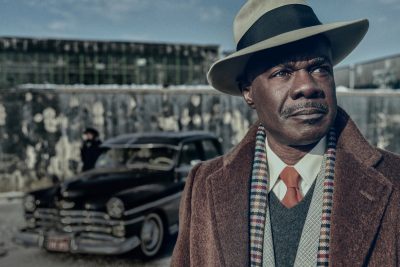 Glynn Turman on ‘Fargo,’ ‘Ma Rainey,’ and His 60-Year Career. By Alan Sepinwall / Rolling Stone
Glynn Turman on ‘Fargo,’ ‘Ma Rainey,’ and His 60-Year Career. By Alan Sepinwall / Rolling Stone
There have been few dramatic performances in an episode of television that are as good as what Glynn Turman did late in the first season of In Treatment. There has likely not been a better one. This fall, he stole Fargo (streaming on Hulu) out from under an all-star cast as the wise, patient, charismatic mob advisor Doctor Senator. And he more than holds his own opposite Viola Davis and Chadwick Boseman in the new film version of Ma Rainey’s Black Bottom (out December 18th on Netflix), based on the August Wilson play about the legendary blueswoman recording an album of her greatest hits on a hot Chicago day in 1927. Read more
 Patti LaBelle, the Doyenne of Philadelphia Soul. By
Patti LaBelle, the Doyenne of Philadelphia Soul. By
A Peek at the Variety, Wonder and Trauma of Black Life, Then and Now. B
Sports
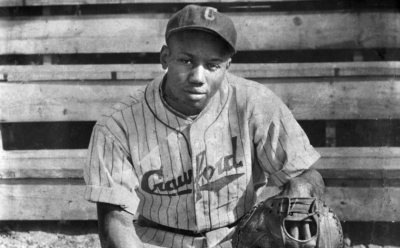 A push to recognize the statistics of Black players from baseball’s era of apartheid. By Kevin Baxter / LA Times
A push to recognize the statistics of Black players from baseball’s era of apartheid. By Kevin Baxter / LA Times
Move over, Babe. You too, Ted Williams. More than six decades after taking their last swings, two of baseball’s top sluggers could soon be dropping down the sport’s most hallowed leaderboards to make room for Josh Gibson, Oscar Charleston and Turkey Stearnes. Major League Baseball is considering giving major-league status to six long-defunct Negro Leagues, where 35 Hall of Famers played during the sport’s segregated era. “It’s the right thing to do,” said Scott Simkus, a former Chicago limousine driver who spent much of the last two decades helping build a statistical database of the Negro Leagues by tracking down and chronicling box scores of once-forgotten games. “It’s long overdue, but it would be righting a wrong. It would be giving the Negro Leaguers full citizenship as professionals.” Shown is Josh Gibson. Read more
 NFL agent David Mulugheta hopes his work can serve as an inspiration to other Black sports agents. By Emmanuel Morgan / LA Times
NFL agent David Mulugheta hopes his work can serve as an inspiration to other Black sports agents. By Emmanuel Morgan / LA Times
Black players make up about 70% of NFL rosters. But there are only five Black head coaches — two of whom are serving in interim roles after firings during this season. Front offices are even less diverse with only two Black general managers. The majority of agents representing players also are white. Mulugheta has broken through to become one of the industry’s most powerful and influential agents. He represents 38 players, including Chargers safety Derwin James, cornerback Casey Hayward and defensive end Melvin Ingram — and has negotiated contracts totaling $1.5 billion. David Mulugheta is flanked by Titans players Kenny Vaccaro, left, and Kevin Byard. Read more
Site Information
Visit our home page for more articles, book/podcast and video favorites. And at the top of this page register your email to receive notification of new editions of Race Inquiry Digest. Click here for earlier Digests.
About Race Inquiry and Race Inquiry Digest. The Digest is published on Mondays and Thursdays.
Use the buttons below to share the Digest in an email, or post to your Facebook, Linkedin or Twitter accounts.
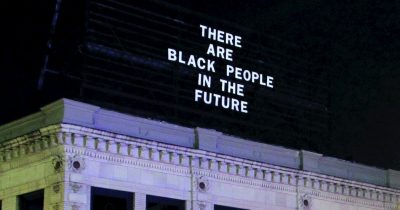 Book Review: ‘Black Futures
Book Review: ‘Black Futures